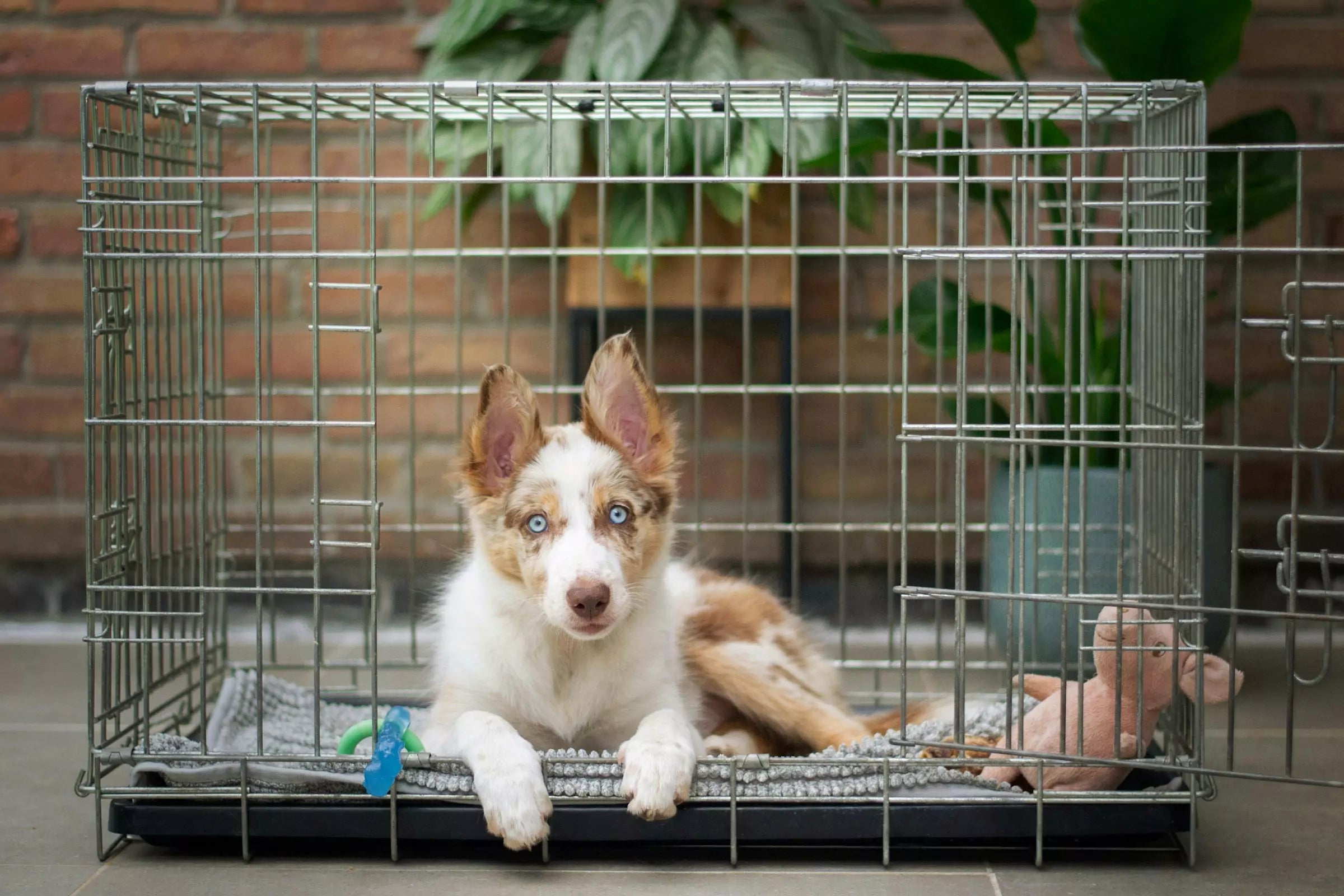Introduction
Hey there, fellow dog parent! If you're reading this, you've probably found yourself wondering: "Are dog crates cruel?" It's a common concern among dog parents, and it's crucial to explore this topic thoroughly. Let's dive into the heart of the matter, understand both sides of the debate, and figure out what's best for our furry friends.
Understanding Dog Crates
First things first, what exactly is a dog crate? Think of it as a cozy, secure spot where your dog can retreat to relax. Dog crates come in various shapes and sizes, from wire cages to plastic carriers and even stylish furniture-like crates. They serve many purposes, such as aiding in house training, providing a safe space, and ensuring your dog’s security during travel.
Historical Context of Dog Crates
Dog crates have come a long way. Originally, they were used mainly for transport and vet visits. Over time, as our understanding of canine behavior evolved, crates became a more integral part of dog training and care routines. Their popularity soared as dog parents recognized the benefits they could offer.
Why Some Dog Parents Think Crates are Cruel
It's not surprising that some people view dog crates as cruel. The idea of confinement can be unsettling. There have been instances where crates were misused, leading to negative experiences for some dogs. When used improperly, crates can indeed cause stress and anxiety, contributing to the perception of cruelty.

Benefits of Dog Crates
On the flip side, dog crates offer numerous benefits. They provide a safe haven where dogs can feel secure, much like a den in the wild. Crates are incredibly effective in house training, helping dogs learn bladder control. Moreover, having a designated personal space can help reduce anxiety and give dogs a sense of ownership and comfort.
Choosing the Right Crate
Picking the perfect crate is key to ensuring your dog’s comfort. It should be spacious enough for your dog to stand, turn around, and lie down comfortably. The material should be durable and safe. Also, consider where you’ll place the crate in your home; it should be a quiet, low-traffic area where your dog can relax.
Training Your Dog to Love Their Crate
Crate training, when done right, can be a positive experience for your dog. Start by making the crate inviting with soft bedding and some of your dog’s favorite toys. Gradually introduce your dog to the crate, using treats and praise to create positive associations. Patience and consistency are your best friends here.
Signs Your Dog is Comfortable in Their Crate
You’ll know your dog loves their crate when they willingly go inside, relax without showing signs of stress, and even choose to nap there. Watch for happy behaviors like wagging tails and calm demeanor. If your dog shows signs of distress, such as excessive barking or whining, it’s time to reassess your approach.
Alternatives to Dog Crates
If crates just aren’t working out, there are alternatives. Playpens and baby gates can create safe spaces without the confinement of a crate. Dog-proofing a room is another option, giving your dog more freedom while keeping them safe. Outdoor kennels can be a great solution for those with ample yard space.
Addressing Common Concerns
A big concern is how long a dog can stay in a crate. Puppies and young dogs should only be crated for short periods, while adult dogs can handle a bit longer. Always balance crate time with plenty of exercise and playtime. Ensuring your dog gets enough physical and mental stimulation is crucial.
Expert Opinions on Dog Crates
Many veterinarians and professional trainers support the use of crates when used correctly. They emphasize the importance of crate training and ensuring that the crate is a positive place for your dog. Experts agree that crates can be beneficial when integrated into a balanced routine.

Debunking Myths About Dog Crates
Let's tackle some common myths. Crates are not meant to be punishment tools; they should never be used to discipline your dog. Another myth is that crates cause separation anxiety. In reality, a well-trained dog sees the crate as a safe space, which can actually help with anxiety.
When Dog Crates Might Not Be Suitable
While crates can be great for many dogs, they’re not suitable for all. Dogs with traumatic pasts or those who have been previously abused may find crates distressing. Senior dogs or those with special needs might also struggle with crates. Always consider your dog’s individual needs and history.
Conclusion
In the end, whether dog crates are cruel or not depends on how they’re used. When chosen and used correctly, crates can be a wonderful tool for both dogs and their parents. They offer safety, comfort, and aid in training. However, it's essential to approach crate training with empathy and patience, always prioritizing your dog's well-being.
FAQs
-
Are crates suitable for all dogs? Not all dogs take to crates. Dogs with past traumas, special needs, or senior dogs might find crates distressing. It's essential to assess your dog's individual needs and comfort levels.
-
How can I make the crate more comfortable for my dog? Add soft bedding, favorite toys, and treats to make the crate inviting. Ensure the crate is the right size, allowing your dog to stand, turn around, and lie down comfortably.
-
Can I crate train an older dog? Yes, older dogs can be crate trained, but it may take more time and patience compared to puppies. Positive reinforcement and gradual introduction are key.
-
What should I do if my dog hates the crate? Re-evaluate your training approach. Make sure the crate is comfortable and introduce it gradually. Never use the crate as a punishment. Consulting a professional trainer might also help.
-
How do I transition my dog out of the crate? Gradually increase the time your dog spends outside the crate while ensuring they still have a safe space. Use positive reinforcement to encourage good behavior outside the crate.















Share:
Should Dogs with Hip Dysplasia Run?
Can Dogs Eat Cucumber?